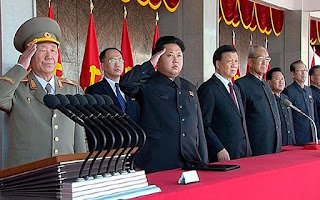The challenge of xenophobia in Africa
The
challenge of xenophobia in Africa
By E. Stanley Ukeni
In recent years there has been an almost philosophical
and academic discussion of the need for a broader integration of the regional,
and continental-wide, economies of African States. Sure, the idea of closer
economic corporation amongst African countries sounds very noble, and perhaps,
even altruistic. However, there are core
mitigating challenges working against the effective implementation of this
noble ideal. Chief among them is the collective will to tackle the thorny issue
of deeply ingrained xenophobic tendencies within African societies, particularly
against citizens of other African countries.
Practically any African who have travelled across
the continent knows all too well about this entrenched problem of prejudice
against fellow Africans. However, many of Africa’s academics and politicians
shy away from addressing this issue. Some dismiss it as mere friendly rivalry,
but the truth is that the issue is anything but friendly. Left unchecked, xenophobia
can lead to the deaths of innocent African migrants, as seen in South Africa
and elsewhere.
The international out roar about the recent
xenophobic rampage of South African’s against the non-indigenous Africans
living in the country resonated far and wide, and rightfully so. The incident
was an appalling act of senseless violence against a defenseless population
group whose only crime is seeking to better their economic condition, while
contributing their talents to make a more prosperous South Africa.
In the aftermath of the carnage that left several
people dead—many businesses looted and properties burnt, a good number of South
African celebrities and corporate entities learnt their talent and financial muscles
to a series of media campaigns against Xenophobia. Although these are welcomed
initiatives, it’s much more important to delve deeper into the root cause of
these spats of xenophobic attacks against innocent African migrants, in the
first instance, if we are to prevent future occurrences.
In May of 2008, a rampage across the South Africa by
marauding thugs, who claimed that other African immigrants were taking their
jobs, left about 62 people dead. This dreadful incident, I have to point out, occurred
during the presidency of Thabo Mbeki. In that instance, there were public and international
outcries.
As is the case with many crisis of conscience in
Africa, as soon as the voices of outrage died down, the embarrassing national
incident was quietly swept under the rug by South African politicians who would
rather wish the problem away than tackle the thorny issue of widespread
prejudice against the immigrant population in the country.
With the problem of intolerance just shoved aside,
rather than tackled head-on, it festered in the minds of the minds of the mass
of South Africa’s suffering poor. Some unscrupulous politicians in the country—hoping
to score cheap political points, quietly, and in some instance vocally, stoke
the amber of disdain against immigrants from other parts of Africa. They blame
the growing poverty in their constituencies, and their inept ability to create
jobs and expand the dwindling middleclass, on the African migrant communities. Of
cause, the mass of the credulous poor buys into this divisive narrative.
Suddenly, rumors of thriving African migrant populations
contributing to the growing unemployment amongst the indigenous South African
spread quickly and widely. This caustic narrative stoked the already simmering
resentment against other African nationals living in South Africa—who are seen
to be prospering at the expense of the indigenous population.
In such combustible environment of recrimination,
all that is needed to set off a fire storm is a spark—which can come in the
form of an inflammatory rhetorical statement or comment by a notable traditional
ruler or politician or perhaps an incendiary incident. Suddenly, carnage ensues—with
the destruction of public and private properties. Often, in the aftermath of
the devastation, the silent majority of law abiding citizens begin to ask
themselves, ‘how could this sort of incident occur in our country?’
Well, the simple answer to that question can be
summed up with this famous quote by an eighteenth century Irish statesman,
Edmund Burke, which states that “the only thing necessary for the triumph of
evil is for good men (and women) to do nothing”. The signs of growing
xenophobic sentiments within the broader South African population had been
apparent all along, but were unwittingly ignored by the majority of South
Africa’s decent and tolerant citizenry.
This recent xenophobic incident in South Africa
should serve as a wakeup call for the other African countries to start looking
at ways to stem the growing problem of intolerance of the citizens of other
African nations residing in their country.
We must resist the urge to sugarcoat the fact that
xenophobic tendencies are not restricted to South Africa alone. Prejudice is a canker
worm that festers in practically all African countries. I propose that all men
and women of conscience should rise to confront this dangerous scourge or risk
one day waking up to ask the question, ‘how could this happen in my country?’
No one country or region in Africa holds a monopoly
on irrational violent tendencies. The problem of violence against the innocent,
in Africa, is one that we must all confront together. The evil of xenophobia must
be challenged at all fronts, if the continent’s populace are to evolve to their
full potential, and the infrastructures that will sustain this emerging vibrant
Africa developed to world class standards.
We are one Africa—with a shared destiny. We must be
driven by the singular vision of improving the quality of life of the
collective citizenry of the entire continent.
Authored by E. Stanley Ukeni, ©2015. All Rights
Reserved.





This comment has been removed by the author.
ReplyDeleteI like it. It is very good
ReplyDelete